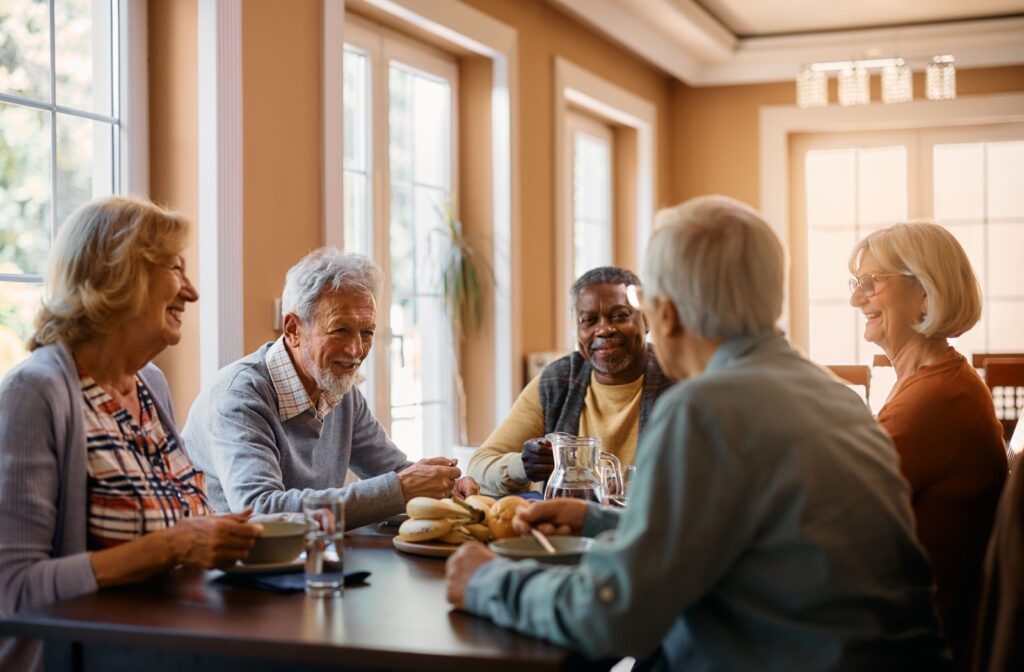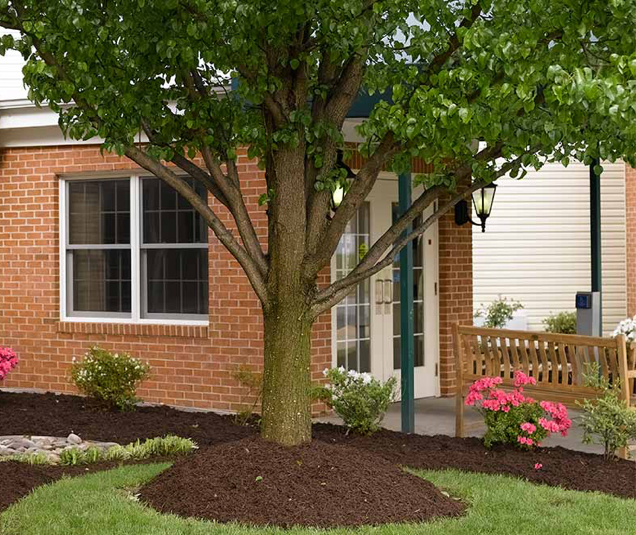Appetite, or the desire to eat, changes throughout life and affects a person in the short and long term. Loss of appetite in older adults is common and can impact overall well-being.
Reasons behind loss of appetite in older adults include:
- Age-related changes
- Medical conditions
- Medications
- Psychological factors
While a meal skipped here and there might seem okay, chronic appetite loss warrants attention and proactive steps. Senior communities, prepared meals, and nutritional support and guidance can contribute to the health and well-being of older adults.
What Is Appetite Loss?
Appetite is a good determinant of a person’s nutritional status. Appetite loss, also known as anorexia of aging, is a common condition among older adults where there is a decrease in the desire to eat.
Factors That Contribute to Appetite Loss
Appetite is a multi-faceted phenomenon. Several factors can contribute to loss of appetite, including aging, medical conditions, medications, and psychological aspects.
Age-Related Changes
The physiological changes that accompany aging influence our loved one’s relationship with food. Reduced senses of taste and smell can lead to a disinterest in eating, while a diminished metabolism may result in feeling full quickly. Additionally, older adults may experience altered hormonal levels that can affect hunger cues.
Medical Conditions
Health conditions common in the older population, such as cancer, heart failure, dementia, and liver disease, can cause symptoms like nausea and mouth sores that affect our loved one’s desire to eat.
Medications
Older adults are often prescribed medicines, many of which carry side effects. These can range from impacting taste, digestion, and energy levels.
Psychological Factors
Depression and loneliness, which are not uncommon in older adults, can further contribute to impaired and decreased appetite.
Impact of Loss of Appetite
Loss of appetite can lead to a broader spectrum of health implications.
Nutritional Deficiencies
With a reduced appetite often comes an insufficient intake of essential nutrients. The body’s need for vitamins, minerals, and macronutrients doesn’t decrease with age, and malnourishment can lead to health concerns.
Weight Loss
A progressive decline in weight—particularly when unaccompanied by intentional dietary changes or increased physical activity—can point towards an inadequate food intake, which, in turn, may worsen frailty and muscle loss.
Decreased Energy Levels
As appetite decreases, so too does energy. Older adults may experience a lack of energy and poor physical performance.
Impaired Immune Function
Loss of appetite, weight loss, and nutritional deficiencies can impair immune function in older adults.
Strategies to Address Loss of Appetite
Interventions to manage and treat appetite loss in older adults can include the following:
- Nutritional counseling: Encourage food choices and a healthy diet.
- Regular meal times: Incorporate structure into the day with regular meals and snacks.
- Enhance flavor: For impaired smell and taste, use varying flavors like pepper, herbs, and spices.
- Social interaction: Social engagement for those prone to social isolation can bring back the joy of eating.
- Medical evaluation: A thorough medical evaluation can uncover undiagnosed conditions, identify underlying causes, and review current medications.
Supporting Seniors with Appetite Loss
Getting your senior loved one’s appetite back on track often takes a team effort. This can include family members, caregivers, and even healthcare professionals.
Caregiver Involvement
Caregivers play a crucial role in helping seniors eat well. This means watching their eating habits, making sure meals meet their dietary needs, and offering kind support as their appetite changes with age.
Healthcare Professional Guidance
Doctors and dietitians can be a big help. They can create special meal plans or suggest treatments for any health issues affecting your loved one’s appetite.
Community Resources
Community resources like meal delivery services and nutrition programs are invaluable support programs for healthy eating.
Senior Living Communities
Senior living communities can be essential for supporting the health and well-being of older adults. They offer a safe and comfortable place to live, with helping hands for daily tasks, delicious and healthy meals, and plenty of opportunities to stay active and social.

Support the Overall Health & Well-Being for Seniors
A decline in appetite can greatly affect the health of older adults. By offering healthy, filling meals and getting a check-up from the doctor, you can help them enjoy food again.
Help your loved one age well. Discover senior living options that promote independence, happiness, and connection. Contact our team at Peregrine Senior Living for more information on our senior living lifestyle options and how our services and dedicated staff can support the overall health of a loved one.













Dining at our community is about more than what’s on the plate—it’s about connection, community, and the joy of gathering together.
Our talented culinary team crafts meals that are both delicious and nutritious, offering flavors that comfort and inspire.
From themed dinners to chef demonstrations, each meal becomes an opportunity to savor the moment and celebrate life’s simple pleasures. 🍴
peregrinesalisbury.com/ ... See MoreSee Less
0 CommentsComment on Facebook
Be a cactus in a world of delicate flowers
Assisted Living Residents creating colorful plants ... See MoreSee Less
0 CommentsComment on Facebook
Birthday bash with Shortcut Sunny 🎂🎉 ... See MoreSee Less
1 CommentsComment on Facebook
Collecting memories, one shell at a time.
Assisted Living Residents made their photo frames ... See MoreSee Less
1 CommentsComment on Facebook
Today we celebrate the caregivers—those whose quiet strength and unwavering compassion bring comfort to so many.
We see the difference caregivers make every day: holding a hand, sharing a smile, or offering reassurance when it’s needed most. 💕
Your dedication reminds us that true care goes beyond tasks—it’s an act of love, patience, and humanity.
Thank you for all you do to make the world a more compassionate place.
peregrinesalisbury.com/ ... See MoreSee Less
0 CommentsComment on Facebook
Mardi Gras Celebration ... See MoreSee Less
0 CommentsComment on Facebook
“Laissez les bons temp rouler!”
(Let the good times roll!)
Memory Care residents decorate Mardi Gras masks to celebrate the holiday. ... See MoreSee Less
1 CommentsComment on Facebook